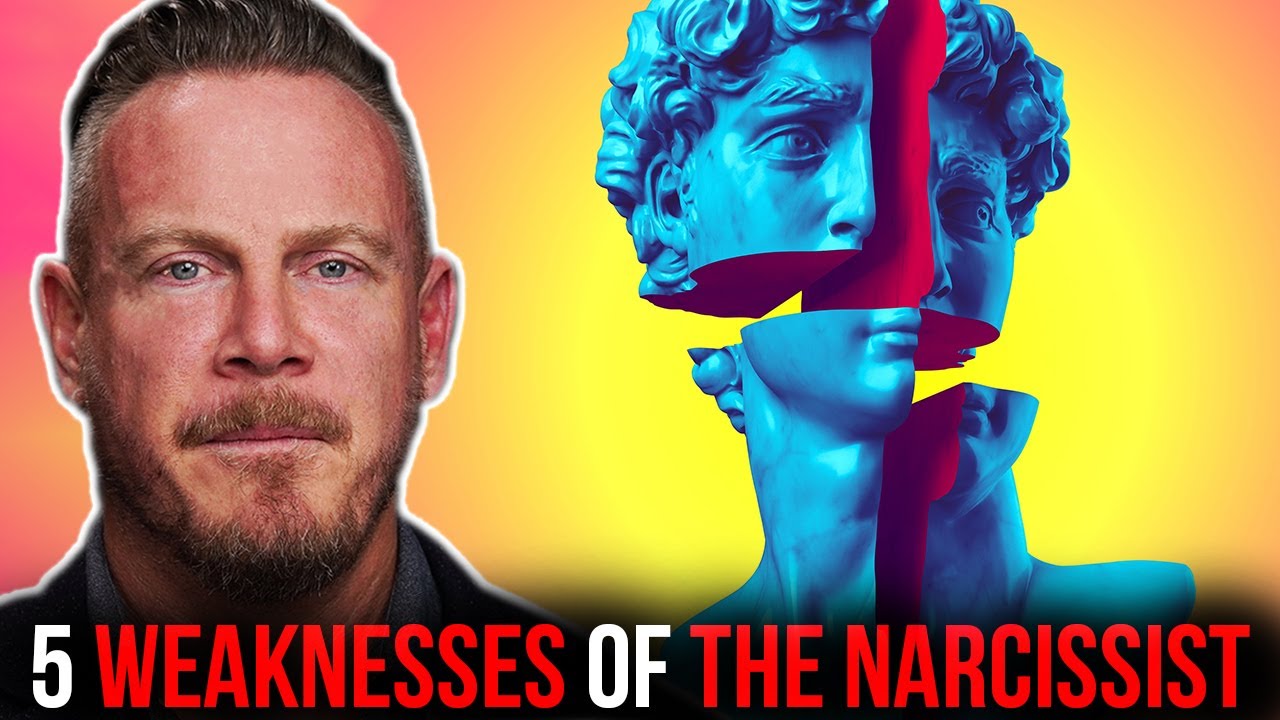Narcissism Is Pain In Disguise, And It's Ruining Lives
Summary
TLDRThis video delves into the complexities of narcissism, focusing on the pain that narcissists carry and how it manifests in their interactions with others. The speaker explains that narcissists are often in deep emotional pain, which they project through harshness, anger, and manipulation, expecting others to soothe their discomfort. The video highlights the destructive nature of narcissistic behavior and offers advice on maintaining boundaries, empathy, and internal strength when dealing with such individuals. It also encourages seeking therapy for better pain management and personal growth.
Takeaways
- 😀 Narcissists often hide their inner pain behind bravado and harsh behavior, which is a defense mechanism for their emotional struggles.
- 😀 The primary message narcissists communicate is: 'I am in pain and rely on you to alleviate it,' expecting validation and admiration from others.
- 😀 When a narcissist's expectations aren't met, they respond with criticism, anger, belittlement, and even loaded questions to manipulate or control the situation.
- 😀 Narcissistic pain can manifest through anger, sarcasm, contempt, and stonewalling, as they project their inner turmoil onto others.
- 😀 Narcissists have a history of emotional damage and often grew up in an environment filled with judgment, high expectations, and lack of emotional support.
- 😀 Narcissists give misery, harshness, and criticism because that's what they have within themselves, unable to offer empathy or kindness naturally.
- 😀 The pain of narcissists is deeply rooted in their childhood, where they received messages like 'Your flaws make you a bad person' and 'Conformity is essential.'
- 😀 Narcissism is a failed attempt at managing internal pain, and narcissists rarely have the tools or skills to deal with their emotional confusion healthily.
- 😀 Setting boundaries and developing empathy are crucial ways to deal with narcissistic behavior. Recognizing their pain helps in understanding their responses, but it shouldn't be an excuse to cater to their toxic demands.
- 😀 It's important to recognize that you can't be the one to fix a narcissist's pain. Instead, focus on self-care, self-growth, and maintaining your well-being by stepping away from their emotional manipulations.
Q & A
What is the core message about narcissism discussed in the video?
-The core message of the video is that narcissists are deeply in pain and that their harmful behaviors stem from this internal struggle. The video emphasizes that narcissism is often a failed attempt at managing pain and emotional disillusionment.
How do narcissists typically react when they feel their pain is not addressed?
-Narcissists tend to react with anger, criticism, and harsh behavior when their emotional pain is not alleviated. This can manifest in belittling, blaming, or projecting their internal struggles onto others.
What are some of the psychological tactics narcissists use to manage their pain?
-Narcissists may use tactics such as stonewalling, insults, sarcasm, and smear campaigns. These behaviors are attempts to transfer their internal pain onto others, making them the target of the narcissist’s unresolved emotional issues.
What role does empathy play in dealing with narcissists?
-Empathy is crucial in understanding the deeper pain behind a narcissist's behavior. While it doesn't excuse their actions, it can provide insight into their inner turmoil, helping others set boundaries and protect their emotional well-being.
Why is it important to establish boundaries when interacting with narcissists?
-Establishing boundaries is important because it helps protect one's emotional health and ensures that narcissists do not control or manipulate others to manage their own pain. Without boundaries, the narcissist's emotional needs can overwhelm those around them.
How does the narcissist's past influence their present behavior?
-Narcissists often grew up in environments where they received harsh judgment, were expected to conform, and were punished for individual differences. These early experiences shape their adult psyche, leading them to struggle with self-worth and a constant need for external validation.
What is the connection between narcissism and emotional disillusionment?
-Narcissism is closely tied to emotional disillusionment, as narcissists often feel deeply hurt by their early experiences and struggle to cope with that pain. Their inability to manage this disillusionment results in manipulative behaviors to seek affirmation from others.
Why do narcissists fail to show kindness or positivity towards others?
-Narcissists tend to give misery, harshness, and negativity because that is what they possess internally. They cannot offer kindness or positivity unless they are in a grooming phase, as they are struggling with their own emotional pain.
How can therapy help someone deal with the effects of narcissism?
-Therapy provides a safe space to examine one's emotions and develop healthy coping mechanisms. It allows individuals to process their pain, set boundaries, and build a stronger sense of self-worth, which can help protect against the damage caused by narcissistic individuals.
What is the suggested approach when dealing with a narcissist's pain?
-The suggested approach is to acknowledge the narcissist's pain without taking on the responsibility to fix it. Setting boundaries, seeking therapy, and focusing on one's own well-being are crucial steps in protecting oneself from the narcissist’s emotional manipulation.
Outlines

This section is available to paid users only. Please upgrade to access this part.
Upgrade NowMindmap

This section is available to paid users only. Please upgrade to access this part.
Upgrade NowKeywords

This section is available to paid users only. Please upgrade to access this part.
Upgrade NowHighlights

This section is available to paid users only. Please upgrade to access this part.
Upgrade NowTranscripts

This section is available to paid users only. Please upgrade to access this part.
Upgrade NowBrowse More Related Video

How Narcissists Turn Their Chaos Into Your Problem

Covert Narcissists live a Painful life on Earth! |NPD| #narcissism #vulnerablenarcissism

The 18 Characteristics of Narcissists

Kenapa Orang Narsis Sangat Berbahaya?

5 Weaknesses The Narcissist Does NOT want you to know about

Classic Narcissism Vs Emotional Immaturity | Signs of emotional immaturity
5.0 / 5 (0 votes)